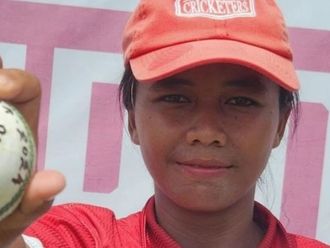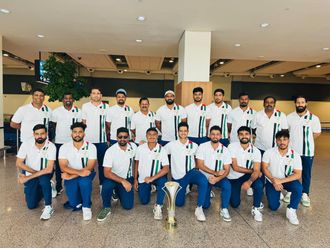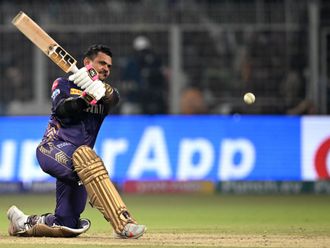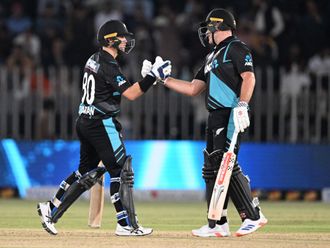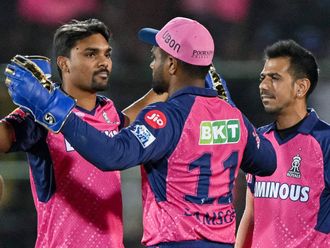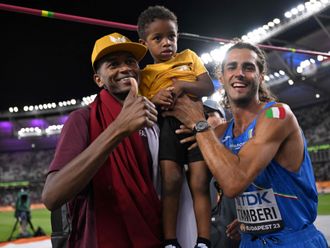Dubai: Living up to their status of the regional big brothers, the Indian cricket board has always stood by their counterparts in Sri Lanka. This time, it promises to be no different.
The mandarins at the Board of Control for Cricket in India (BCCI) are already looking at options to help the Lankan board following the request of Arjuna Ranatunga, currently at the helm of Lankan cricket. "There is a possibility of hosting some off-shore matches between us, and we are trying to find out a slot when our cricketers are free," said Niranjan Shah, the BCCI secretary.
Speaking to Gulf News, Shah said they would work out a solution soon because of the "brotherly relation" that the boards of two countries enjoy. Incidentally, the two countries, alongwith Pakistan and Bangladesh, will host the third World Cup in the sub-continent in 2011.
It was during the last World Cup in the sub-continent in 1996 when India's stance really took the cricketing world by surprise, both in terms of dramatic effect and the emerging signs of the powerful Asian bloc in cricket that is now in place.
Masterstroke
Just before the inaugural ceremony, a powerful explosion ripped downtown Colombo - killing at least 90 people. This set off the panic buttons among some of the participating nations - quite justifiably - with Australia and the West Indies refusing to travel to Sri Lanka to play their group league matches.
After a marathon huddle in a Kolkata hotel, Jagmohan Dalmiya, convenor of PILCOM (the joint organising committee of India, Pakistan and Sri Lanka) came up with a masterstroke. A joint India-Pakistan team led by Wasim Akram, an object of cricketing fantasy of fans of these countries, were rushed in a chartered flight to play Sri Lanka - and make the statement that the Isles was not an unsafe place after all.
Cut to the summer of 2001. Sourav Ganguly's team was touring Sri Lanka for a tri-series and then a three-Test series against the hosts. This time, a suicide squad attack right in the Colombo airport resulted in a meaningless loss of lives - but both the Indian players and the board was unfazed and tour concluded safely.
Then again in 2006, both India and New Zealand were on tour there when a powerful explosion outside the teams' hotel forced the Kiwis on the backfoot.
The Indian board, however, acceded to their counterparts' request for a makeshift bi-lateral series and Rahul Dravid's men stayed on. That the rains intervened - washing away all the games - is a different story.


